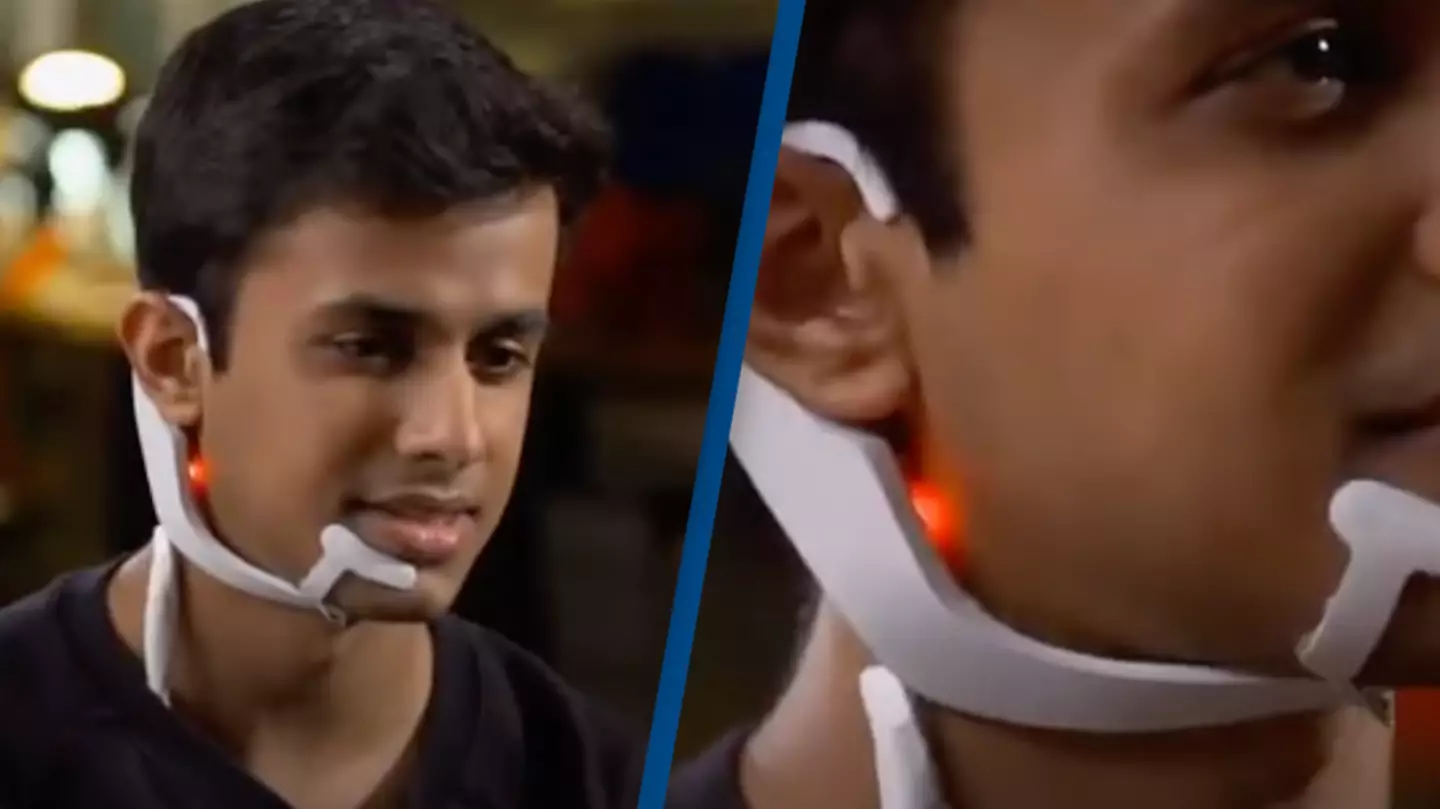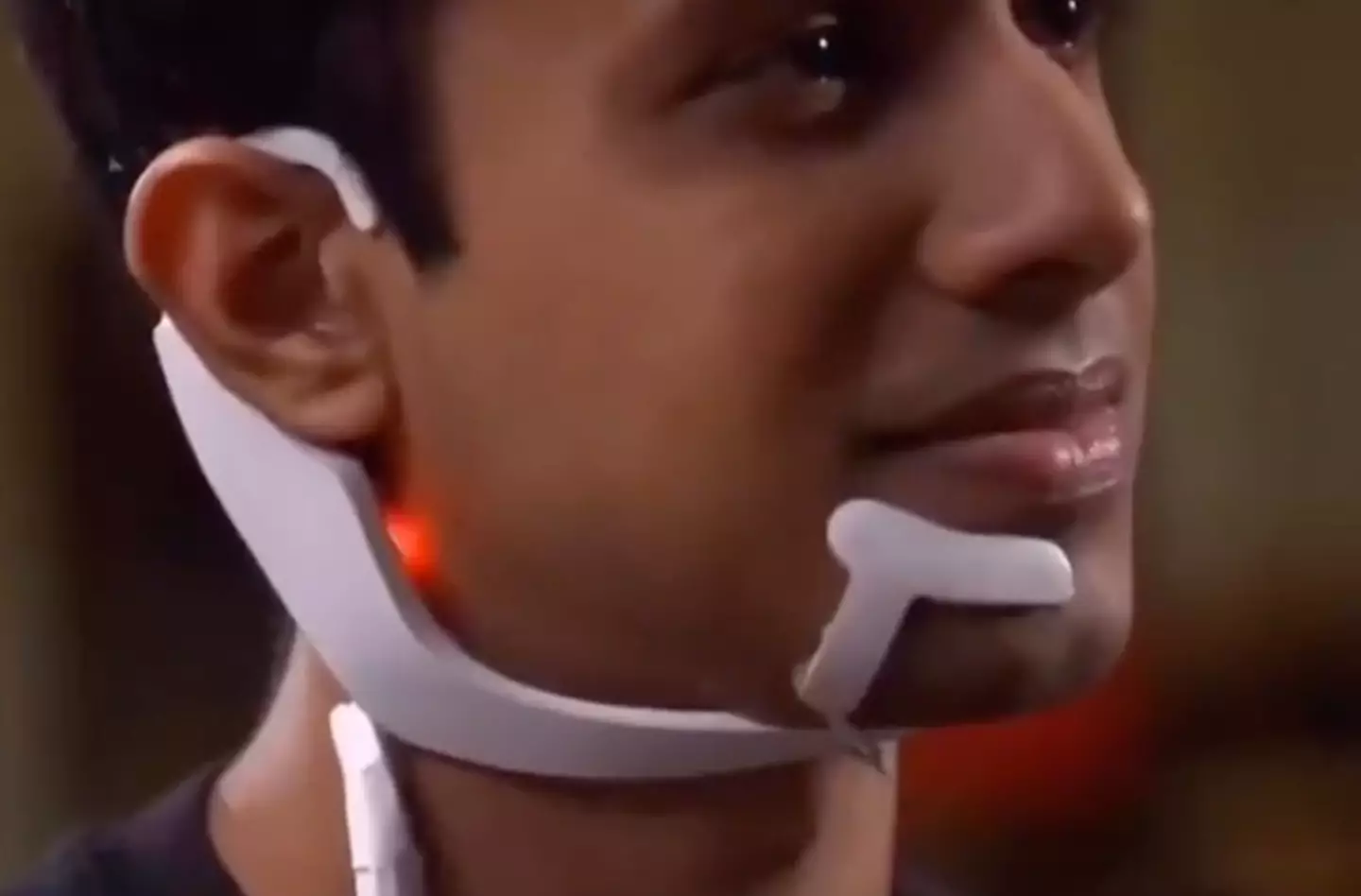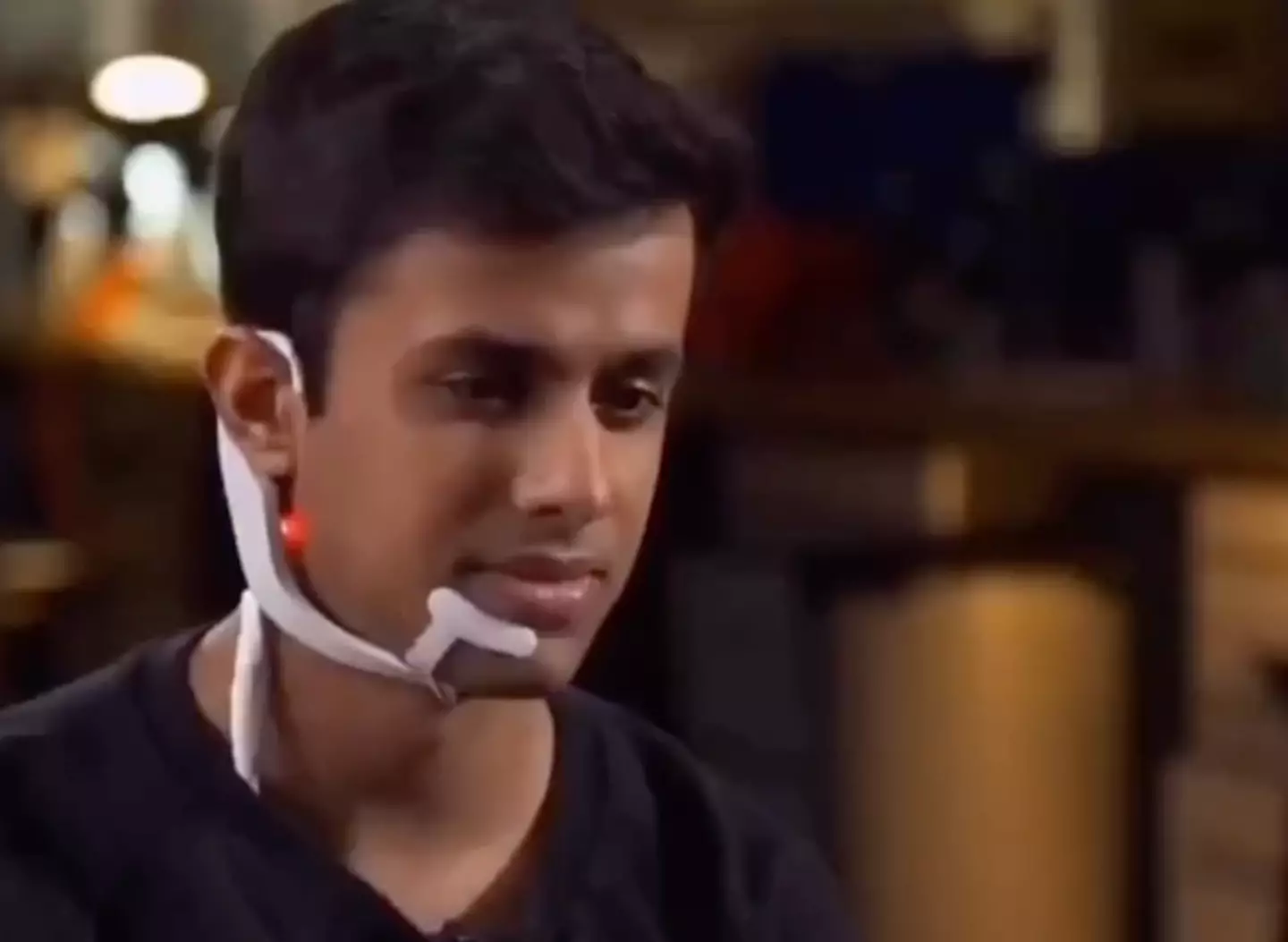
A student has left people stunned after revealing a device that allows a person to search the internet using their mind.
Massachusetts Institute of Technology (MIT) graduate student Arnav Kapur has even come up with a catchy and memorable name for the mind-blowing device: AlterEgo.
It works as a wearable type of headset that allows a person to 'communicate' with technology without having to utter a single word.
But how is this even possible? How does it work?
Advert
Well, the device records signals when the user internally verbalises a particular word. This information is then sent to machines, which use the internet to find the answer.
I suppose it is sort of like having Google in your head, which might result in even more random browsing history, but is pretty damn incredible all the same.
Without speaking, typing or doing anything at all, the device is able to search the internet for the correct answer before feeding back the information via skull vibrations into the inner ear.
Apparently, the answer presents itself in a similar way to a person's internal voice, but without interfering with their 'usual auditory perception'.
Possibly a little dystopian, depending on who you ask, but a fascinating step forward in technological capabilities.

It can search for info, solve maths equations and provide answers to all kinds of different questions.
"This enables a human-computer interaction that is subjectively experienced as completely internal to the human user—like speaking to one's self," MIT Media Lab explains.
"This enables a user to transmit and receive streams of information to and from a computing device or any other person without any observable action, in discretion, without unplugging the user from her environment, without invading the user's privacy."
In a video of the device in action, Kapur is asked to provide the answer to a ridiculously difficult maths calculation, which he does no problem.

He's then asked to name the largest city in Bulgaria, as well as providing the population of the region, too - which, of course, he answers correctly.
Kapur says the idea is to basically have the entire internet in his head.
But, another focus is to help support those with speech disorders, such as those who have been diagnosed with neurological disorders.
"A primary focus of this project is to help support communication for people with speech disorders including conditions like ALS (amyotrophic lateral sclerosis) and MS (multiple sclerosis)," MIT explained.
"Beyond that, the system has the potential to seamlessly integrate humans and computers - such that computing, the Internet, and AI would weave into our daily life as a 'second self' and augment our cognition and abilities."
Topics: Technology, Science